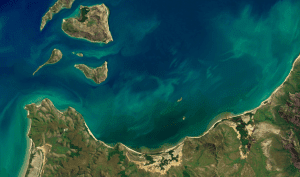
Radiant.Earth provides a geospatial and imagery technology platform that supports knowledge transfer to positively impact the developing world’s greatest social, economic and environmental challenges.
The European Space Agency (ESA) and Radiant.Earth will jointly enhance geospatial data literacy in the global development community to help track the Sustainable Development Goals (SDGs).
“Geospatial information is central to accurately tracking and measuring the global progress of the SDGs,” noted Radiant.Earth Founder and CEO Anne Hale Miglarese.
The ESA and Radiant.Earth cooperation focuses on merging the rapid innovation in machine learning and cloud computing with traditional remote-sensing science to support global development objectives in addition to the SDGs. This cooperation will include the following:
“Global and Open Earth Observation data from space will help to better guide development practitioners in managing natural resources in a sustainable way,” said Josef Aschbacher, ESA Director of Earth Observation Programmes. “The cooperation between ESA and Radiant.Earth will also contribute to increasing the uptake of Earth Observation data by the wider development community, thereby helping to deliver the full societal value of open data.”
